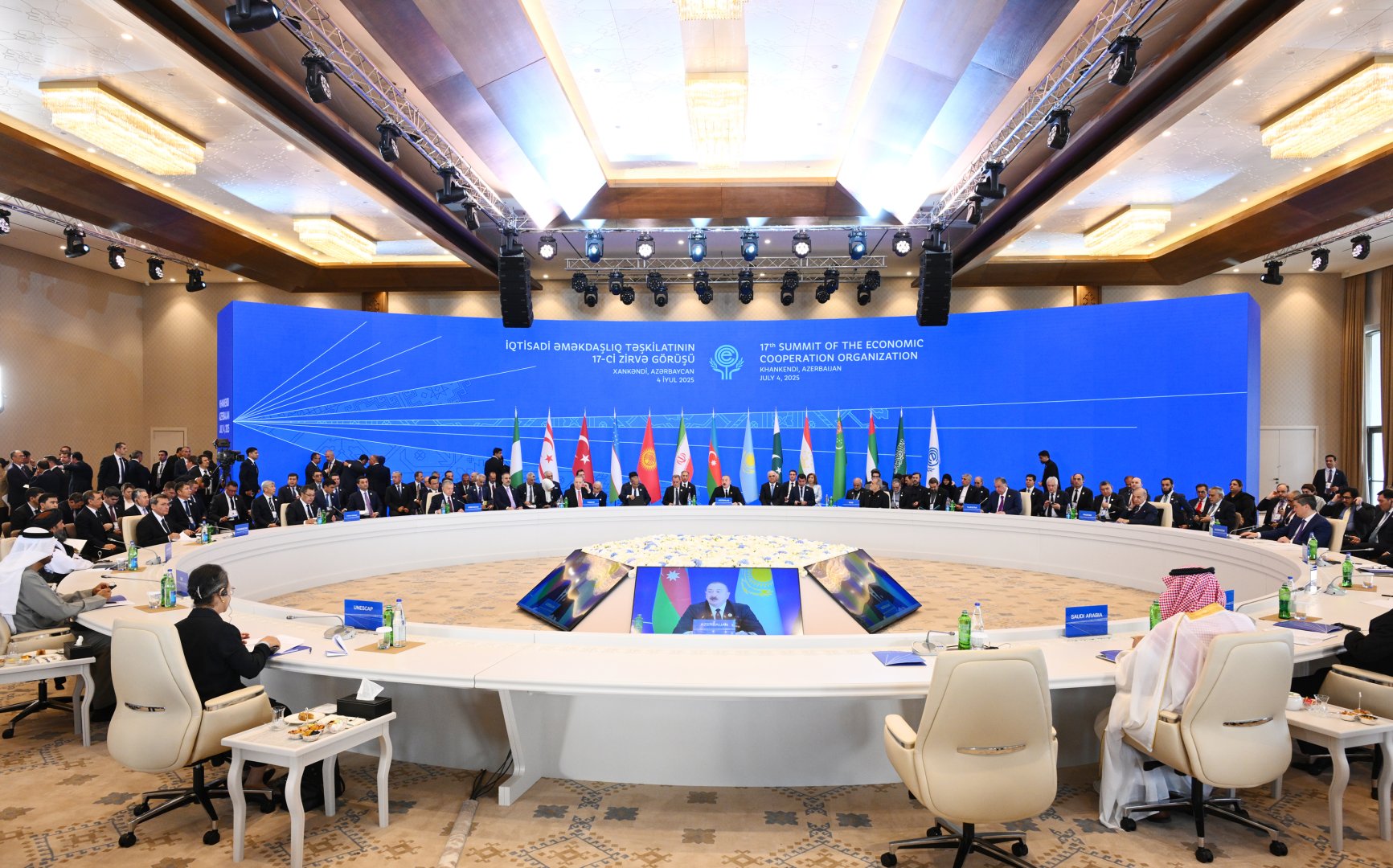BAKU, Azerbaijan, July 5. At the 17th Summit of the Economic Cooperation Organization (ECO), held on July 3-4 in Khankendi, special focus was placed on transport and logistics integration. Leaders from ECO member states, especially those from Central Asia, presented ambitious initiatives aimed at modernizing infrastructure, addressing logistical bottlenecks, and strengthening connections across the Eurasian region.
These proposals come amid growing interest in the Middle Corridor, which has emerged as a vital alternative to traditional transit routes. This development is closely linked to Azerbaijan’s role as a key member of the organization and an indispensable partner in shaping the new regional transit architecture.
Central Asian countries are pushing for sustainable transport independence by diversifying routes and improving internal connectivity.
For example, Turkmenistan proposed updating logistics and transport operations to meet today’s challenges. Deputy Prime Minister and Foreign Minister Rashid Meredov said: "Our transport corridors must be resilient, safe, and efficiently connect ECO countries across the Eurasian space". He also emphasized the priority of modernizing the Turkmenbashi International Sea Port and enhancing links between Europe and Asia.
Kazakhstan positioned itself as a logistics hub bridging East and West. Prime Minister Olzhas Bektenov noted: "We are actively developing the Trans-Caspian route, the North-South corridor, as well as routes through Kazakhstan and Turkmenistan. A container hub has opened at Aktau Port, and a multifunctional terminal is under construction at Kuryk".
Landlocked Kyrgyzstan highlighted the need for equal access to port infrastructure. President Sadyr Japarov proposed: "We believe it is essential to create preferential terms for port access. Additionally, promoting the digitalization of logistics - including rail and road transport - is necessary".
Uzbekistan stressed the strategic importance of alternative corridors. President Shavkat Mirziyoyev said: "Recent geopolitical events have once again shown how vulnerable international logistics chains are and how important it is to develop alternative transport corridors. A major milestone was the launch last year of the China-Kyrgyzstan-Uzbekistan railway project. In the future, this network will connect with the Trans-Afghan corridor, enabling efficient transit links across our vast region. We believe it is time to begin implementing the initiative to create a Digital Transport and Customs Agency to systematize the digitalization of transport and logistics, and we call for intensified expert-level negotiations".
These statements clearly reflect Central Asia’s drive to strengthen its logistics role across Eurasia. However, realizing these ambitions is impossible without close cooperation with Azerbaijan, a country playing a central role in the Middle Corridor’s development.
In recent years, Azerbaijan has become one of the region’s leading transport and logistics hubs. It provides ECO countries with a real gateway to European and Mediterranean markets through its infrastructure and integration into international corridors.
At the previous ECO Summit in Tashkent, President Ilham Aliyev noted: "Azerbaijan’s transport-logistics infrastructure is accessible to the ECO Member States. In recent years, Azerbaijan has invested billions of US dollars in its transportation infrastructure. East-West and North-South Transport Corridors passing through Azerbaijan has turned our country into one of the transport and logistics hubs in Eurasia. The construction of Azerbaijani sections of both corridors have already been completed. Currently, works are underway to expand the cargo handling capacities of the rail roads along these two corridors".
At Khankendi, the President of Azerbaijan reaffirmed this commitment: "East-West and North-South transportation corridors run across Azerbaijan and most ECO member states use these corridors".
ECO countries have access to the Baku-Tbilisi-Kars railway, the Alyat International Sea Trade Port, the Baku-Tbilisi-Ceyhan oil pipeline, the Southern Gas Corridor, and a modern road network. Together, these form a unified system enabling Central Asian countries to advance their export and transit plans.
Azerbaijan is also actively involved in regional and interregional projects. Notably, the Lapis Lazuli Corridor, which links Afghanistan, Turkmenistan, Azerbaijan, Georgia, and Türkiye, is underway - another example of Azerbaijan’s growing role as a key Eurasian transport node beyond the ECO framework.
Today’s geo-economic reality requires Central Asian countries to seek reliable and sustainable ways to integrate into global supply chains. In this context, Azerbaijan is not just part of the solution - it is the foundation. Without secure transit through its territory, efforts to enhance regional logistics connectivity will remain aspirations. Through their initiatives within the ECO, Central Asian countries have effectively designated Azerbaijan as their primary logistics partner. Together, they are shaping a new Eurasian transport architecture capable of withstanding future challenges.







